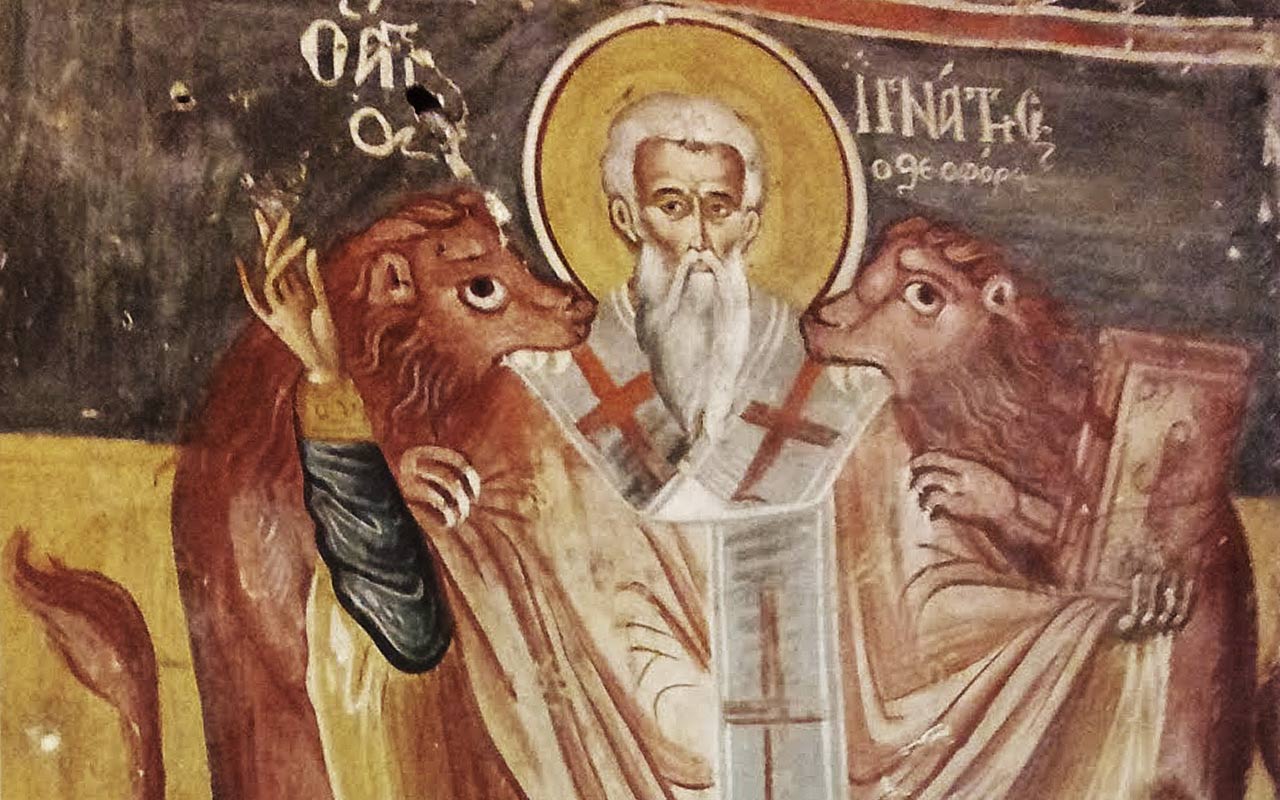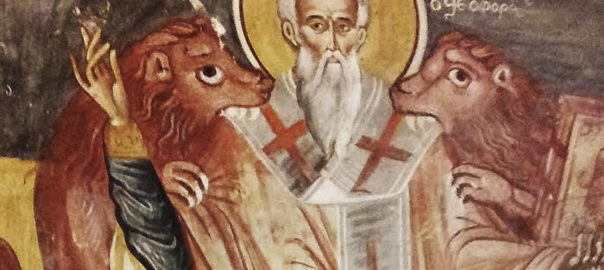
It is sometimes noticed that while the belief in a final restoration of all things was widespread in the first four or five centuries of the church, there is only little conclusive evidence of explicitly universalistic soteriologies in the second century. The reason for this could arguably be that eschatology in general was not very developed then. Ilaria Ramelli, in her A Larger Hope?, does find some hints, though, in second century authors such as Ignatius of Antioch (dead c. 108 AD). The quote below is from the so-called middle recension version of Ignatius’ Epistles to the Smyrneans. It has long been debated what is the authentic version of Igantius’ epistles, but the authenticity of the middle recension seems to be affirmed by current scholarship(?).
In the passage, Ignatius counters the docetist claim that the sufferings of Christ (the Word) was only apparent, the incarnation being “in appearance only”. No, says Ignatius, the Word really did suffer “for our sakes” and when his flesh was being lifted up to the cross he drew “all men to Himself for their eternal salvation” (cf. John 12:32). Of course, when Ignatius threatens that the docetists will be “divested of their bodies, and be mere evil spirits”, this suggests a miserable state for unbelievers after death. It is not precluded here, however, that they too will be resurrected and restored at a later point, as theologians such as Origen would eventually argue.
Ignatius writes:
Now, He suffered all these things for our sakes, that we might be saved. And He suffered truly, even as also He truly raised up Himself, not, as certain unbelievers maintain, that He only seemed to suffer, as they themselves only seem to be [Christians]. And as they believe, so shall it happen unto them, when they shall be divested of their bodies, and be mere evil spirits.
Now, He suffered all these things for us; and He suffered them really, and not in appearance only, even as also He truly rose again. But not, as some of the unbelievers, who are ashamed of the formation of man, and the cross, and death itself, affirm, that in appearance only, and not in truth, He took a body of the Virgin, and suffered only in appearance, forgetting, as they do, Him who said, “The Word was made flesh; ” and again, “Destroy this temple, and in three days I will raise it up; ” and once more, “If I be lifted up from the earth, I will draw all men unto Me.” The Word therefore did dwell in flesh, for “Wisdom built herself an house.” The Word raised up again His own temple on the third day, when it had been destroyed by the Jews fighting against Christ. The Word, when His flesh was lifted up, after the manner of the brazen serpent in the wilderness, drew all men to Himself for their eternal salvation. (Ignatius, Ep. Smyr. 2)
